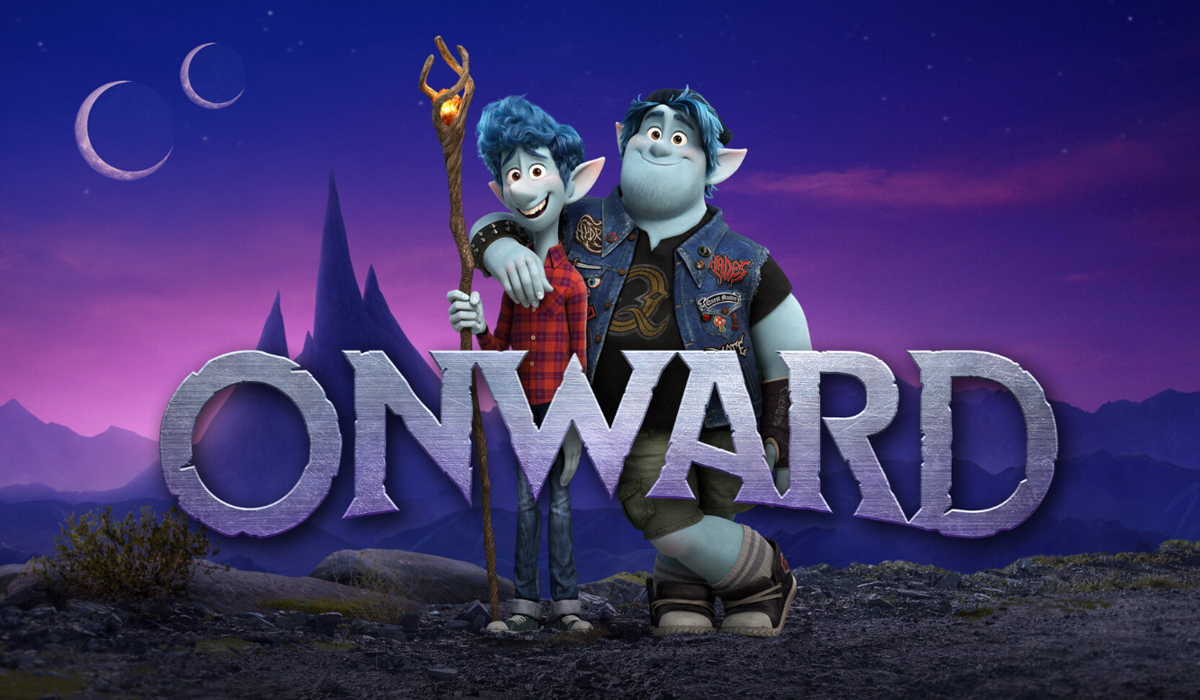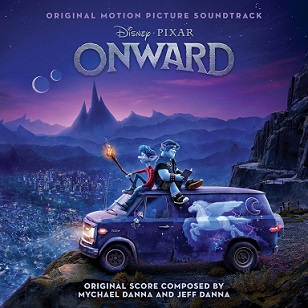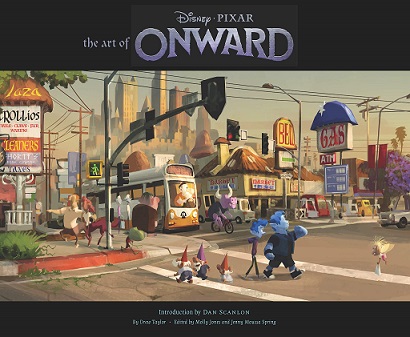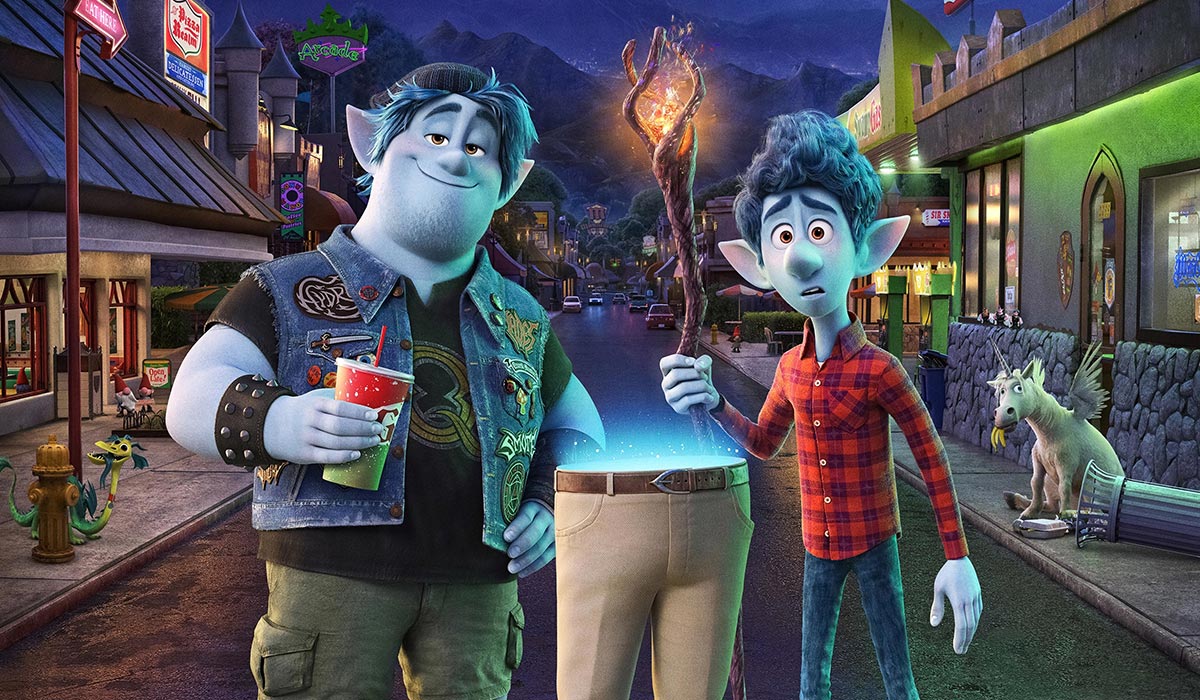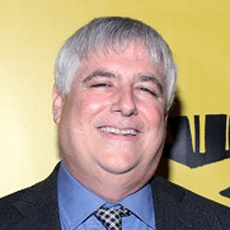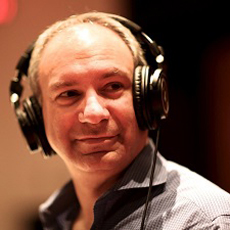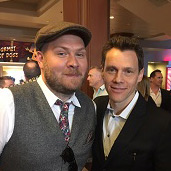 Set in a suburban fantasy world, Disney and Pixar’s Onward introduces two teenage elf brothers who embark on an extraordinary quest to discover if there is still a little magic left out there.
Set in a suburban fantasy world, Disney and Pixar’s Onward introduces two teenage elf brothers who embark on an extraordinary quest to discover if there is still a little magic left out there.
And there is magic in Onward indeed! In every bit of it. And in every note of the score composed by Mychael and Jeff Danna. The two brothers know how to take us on a musical journey unlike any other, with that mix of classical, traditional and rock influences that they’re known for. To conduct that masterpiece, they appealed to Nicholas Dodd, with whom they’re used to collaborating, and who did some of the orchestrations, too.
Nicholas Dodd is regarded as one of the leading conductors and orchestrators of Hollywood film music. After graduating from the Royal College of Music in composition and orchestration, Nicholas first acted as a music producer, owning a recording studio in London; and it was in those early days that he met composer David Arnold, a fateful encounter. They first worked together on the British movie The Young Americans (1993), followed immediately by the major success Stargate, which took the duo to Hollywood.
Dodd’s feature film credit list is now an extensive one, including Independence Day, Godzilla, Lethal Weapon 4, The Mummy, Shaft, Hot Fuzz, Avatar, The Chronicles Of Narnia: The Voyage Of The Dawn Treader, Paul and Wrath Of The Titans.
Furthermore, alongside composer David Arnold, Nicholas has orchestrated and conducted some iconic James Bond soundtracks: Tomorrow Never Dies, The World Is Not Enough, Die Another Day, Casino Royale and Quantum Of Solace.
Onward was actually his second recording with Pixar, as he also conducted the score for The Good Dinosaur, also composed by the Danna brothers.

AnimatedViews: How did you start collaborating with the Danna brothers?
Nicholas Dodd: Well, I met them separately. The first brother I worked with was Mychael. That was on 8mm, in 1999. We recorded it in a huge hall in New York, on 34th street. So, I’ve been working with Mychael on and off on small projects and not-so-small projects right until Onward. And Jeff, his lovely brother, I started working with him in 2003. He was working on The Gospel Of John and he heard about me from his brother. And gradually from this time, the brothers have been working more together, especially in animation. The Good Dinosaur was good fun to work with. Then, there was The Addams Family, and now Onward. It’s fabulous animation. It’s a great story, beautifully told, and the guys made a superb score!
AV: You’ve been working with them both as an orchestrator and a conductor. As an orchestrator, how do you work with them?
ND: In every cue I get presented by Jeff and Mychael, I recognize their style, and I know their style, so I have an affinity with their style. For Jeff, for instance, I will allow myself more creative orchestration because Jeff likes that. Mychael is more specific, but I will still allow myself some creative orchestration, just slightly less. I think classical music gave me a great base to understand music. They give me a mock-up and a MIDI. Everything is very clear, the emotional direction of the phrase, where it becomes strong, where it becomes what I call quiet music in the background. I think any cue that’s presented well, I have an affinity with, because I know what to do, and this is very rare. Sometimes I get given a cue where it could go a little bit the other way or that way and I’m not quite sure, and then I look at the film and I say, ‘yes, ok, I see!’ But with Jeff and Michael, when I hear their music, I know exactly what they want to say.

AV: How do you describe their style?
ND: They are very much international, western international. They’re not writing in the Oriental or Asian style of music. But they’re international in the sense that I wouldn’t say that they’re Canadian, I couldn’t say they’re American-based or English-based or Middle-Eastern or South American. They are able to turn their hand to all the styles that are needed for the film. So, I regard them as international composers.
AV: How does that international flavor express itself in Onward?
ND: Highly varied! It makes great use of guitars, most of them played by Jeff Danna. It draws on the full orchestral palette, on rock influences, with drums, bass and guitars, and on choral influences.
AV: Was that diversity of influences and of groups of instruments a challenge to you now as a conductor?
ND: If something is clear to me, even if it blends different things and takes from different musical genres, I just enjoy conducting! Somebody asked me that about John Barry: ‘What’s the difficulty of conducting John Barry’s music?” And I answered: ‘What difficulty? It’s very clear.’ With Onward, I didn’t find any difficulty. I found a lot of fun! Once I’ve finished my orchestration, I put that hat off and I put my conducting hat on, and my job is to bring out the best in each cue. Therefore, we talk about balances, what the main lines are, the timing, and put the final craft to the cue, if you will. I just try to inspire the musicians to play their very best. We got such good musicians. We always play to the highest standards. So, if you understand the cue, you know what it says, where and when, then you have a sound picture in your head, and then you mold that cue the best you can according to what’s required by the composers for the film.

AV: How big was the orchestra?
ND: About 85 musicians. But that was just the main orchestra. We had a choir of 30, and there were countless overdubs by Jeff, and the drums, etc. So, I would say it was about 120 people if you put everything together. It was quite big!
AV: How did you record all these different elements?
ND: They were all recorded separately. In a film soundtrack, you have to have a lot of separate elements, be it in the score or in the effects, to control the balance between them. So, we had many sessions with specific instruments, like the lute, the mandolin, and other folk instruments.
AV: How did you work with the Synergy Vocals, which is a very versatile choir, renowned in classical music as well as film music.
ND:When I finished recording it at Warner Bros. in Los Angeles, I immediately got on the plane and fly to England to conduct them at Abbey Road Studios. I have to say, I thoroughly enjoyed them. They were adaptable and they gave it 110%. I’m not saying other choirs don’t, but I asked them things that were different from what there were used to, and they rose to the occasion beautifully. They were just fun to work with, and that came through in the sound. It’s a really good sound. For instance, we worked on the strange pronunciation of the funny Latin words that are in the lyrics to bring things out in the battle sequence against the dragon. And then, I wanted to push a certain phrase, so I asked them to say it slightly above pitch to bring a certain sonority, a certain feel to it. I also pushed the envelope in asking the choir and certain soloists to be very operatic and over the top with their vibrato, like in the Sacrifice scene, with Guinevere the van. I don’t think they’re asked to do that normally. Rather, to pull the vibrato back. So, I got everyone doing over the top vibrato and that was the sound that was recorded. It was different, and it was great! And it just fit the film perfectly.
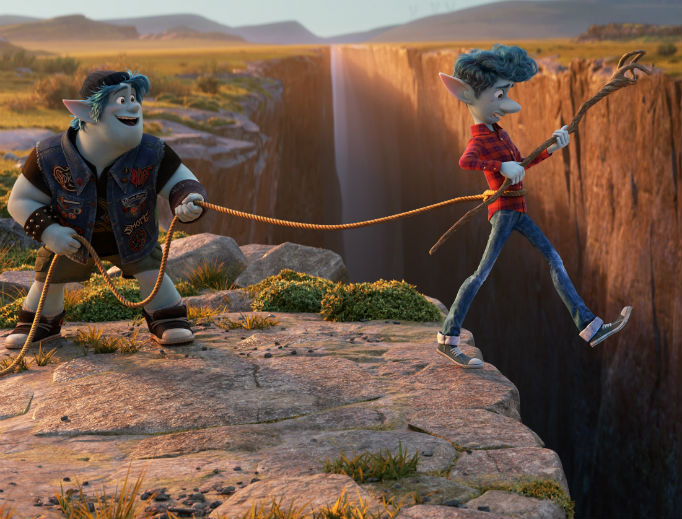
AV: As a musician, what kind of relationship do you have with Pixar?
ND: Well, I can say with certainty that working with Pixar is just brilliant because they actually do appreciate, as a company, music and musicians. This is not to say with every company. At Pixar they’re out of their way to allow the composer (the composers in this case) as much freedom as they feel is right for the film. And they’re very supportive. Pixar is a very creative company and the people we worked with were really lovely. They just made the recording session special.
AV: What will you keep from the experience?
ND: First of all, I always love the first moment with the orchestra. And then, there’s this cue, right at the end of the film, called Dad, when the father reappears. It’s a fantastic cue starting quietly, with a lovely texture, then it moves to a very intimate moment, and a few bars later it becomes larger and larger and builds to this wonderful, wonderful end. It’s a lovely cue and I really enjoyed orchestrating it. It was also a very special moment in recording it. The whole orchestra felt it. Everybody in the control room felt it. It was a moment of grace. That’s why I sit in a room by myself for 16 hours a day for several weeks: to experience that magic!
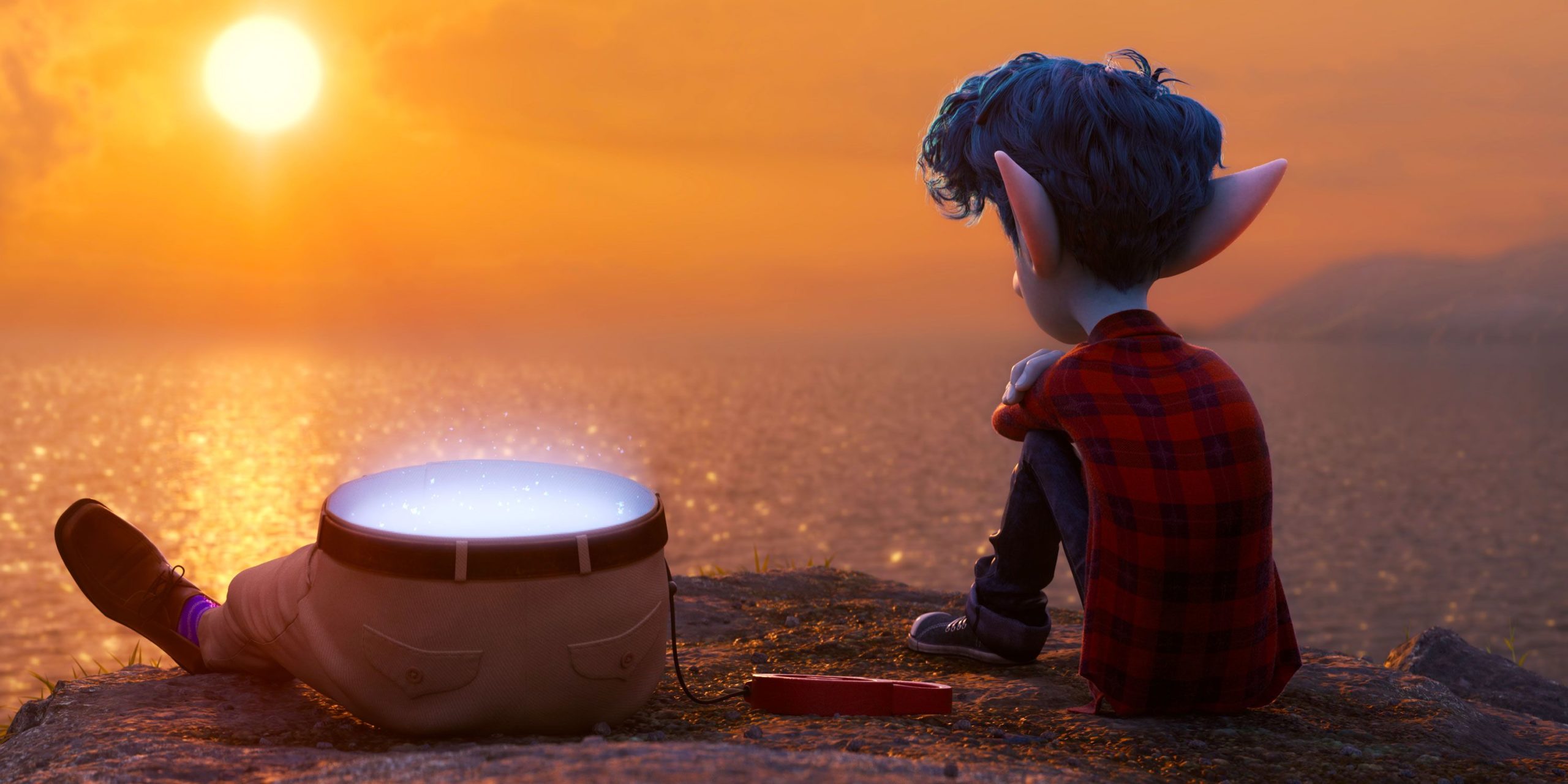
The Onward soundtrack is available to order from Amazon.com!
The Art Of Onward is available to order from Amazon.com!
With very special thanks to April Whitney (Chronicle Books).



